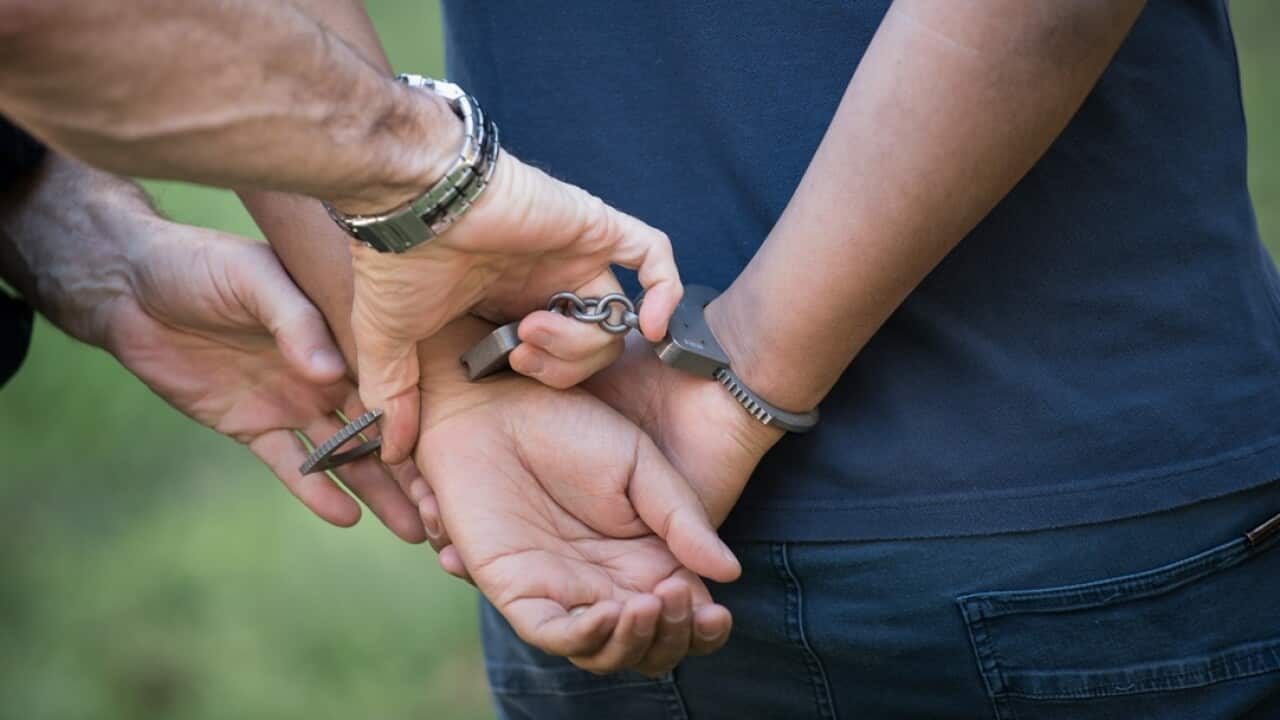Drug mules, explains Australian author Kathryn Bonella, "are probably the peasants."
In the Brazilian city of Florianopolis, they don't have mules, rather they have 'horses'.
"A 'horse' is an upmarket mule," Bonellla explains.
She says 'horses' are typically "someone who speaks English, is well-traveled, looks good, educated."
Kathryn Bonella spent a long time in Florianopolis for her latest book, Operation Playboy, and shares with SBS Portuguese a gripping story of how upper middle class surfer boys from Joaquina Beach became drug lords in the Florianopolis-Amsterdam-Bali circuit.
Florianopolis is a relatively small capital city in Brazil, a paradisiacal island in the South Atlantic, with just under half a million inhabitants and ranked by the United Nations' Development Programme, using the Human Development Index, as the best capital city to live in the country.
Why then has it became such an important location in the smuggling of cocaine?
It was home to "cheaper horses," says Bonella. "There are a lot of European descendants there, so they are blonder - with blue eyes."
"They sort of meld with the crowd - when they land in Europe, they don’t look so out of place," says Bonella. "They look like they're maybe going home to Europe."
"Adrenalin junkies," is how Kathryn describes them. "They were used to taking risks."
"Even the guys from Rio, like Marco Archer, who was executed - he was a professional hang glider.
"These guys… they surf, they hang glide, they parasail, they paraglide. They love extreme sports.
"They are very charismatic. Most of those men are very good looking."
"He said 'I feel like I have blood on my hands.'"
These smooth surfer dudes, Kathryn says, "were their own best advertisements."
She explains that it didn't take much to recruit others to the smuggling game, "Others who were already in the game would come back with great clothes and high-quality marijuana from Europe and so it kind of caught on."
The bestselling author was amazed when one of these "playboys" began to open up to her as she researched the book.
He revealed his remorse and guilt at having handed over four surfboards, which concealed kilos of cocaine hidden inside, to the horse Rodrigo Gularte.
Gularte's fate was then sealed after being caught in Indonesia, where he was sentenced to death row and executed alongside the Australian Bali nine smugglers Andrew Chan and Myuran Sukumaran.
Bonella says, "He said 'I feel like I have blood on my hands.'"
"It was almost like a confession and he hadn’t really talked to anyone about it," says Bonella.
"He feels great guilt and he wanted to talk about it."
Joaquina Beach, one of dozens of beaches in the island, became famous for its great surf waves. And now, for the cocaine, skank and ecstasy connections.
“This is where it all started," says Bonella. "They were the guys, and one of them said to me, 'We are tough at Joaquina, we surf big waves, we are used to it, we are tough.'"

Prior to embarking on her latest Brazilian adventure, Kathryn Bonella was of course best known as the bestselling author of the "Bali trilogy" of books. Schapelle Corby’s autobiography My Story was the first, then Hotel K, documenting the inside story of Bali's infamous Kerobokan jail and Snowing in Bali which covered the underworld of Bali's drug industry.
Bonella states that she believes in Schapelle Corby's innocence and Corby is clearly a big supporter of her biographer too, taking to Instagram to promote her book to her nearly 200k followers.
The death penalty is of course an extreme one for smugglers, but asked as to whether it actually acts as a deterrence for the horses, Kathryn Bonella just reminded us of Rodrigo Gularte's case:
"Marco Archer was sentenced to death by the court in Jakarta and eight days later - just eight days later - they decided to send the horse Rodrigo Gularte to Bali, so it was not a deterrent at all."
"Marco Archer, who anyone from Brazil would know, was the first Westerner executed - the first Brazilian ever executed, in Indonesia," Bonella says.
The author says that the horses and drug lords also loathe the nine-to-five boring life.
She describes what one Brazilian, jailed in Indonesia, told her as he looked out at a high rise building from the prison courtyard, "He looked at it and he pointed at me and said "To me that’s prison,'" she says. "You know, living in a little flat, to him."
"He was saying it from the jail courtyard, but he still knew that he would get out and he had all this years of fantastic highlife."
Fernando Caieron, based in Florianopolis with the Brazilian Federal Police, was the creator and boss of the police taskforce dubbed 'Operation Playboy' - named for the high-flyers that made up these bands of professional smugglers.
Kathryn Bonella spent countless hours interviewing him.
"He was absolutely dedicated to catch these playboys and he is a straight cop," says Bonella.
"The judiciary in Brazil, the legal system, from the cops to the lawyers, is endemic with corruption.
"He is a straight cop in a bent system, trying to do his best to clean it up, to make a mark, to improve things in Brazil."
Asked about the dozens of young Brazilian 'horses' frequently seen being caught in Australia's airports with cocaine, Kathryn Bonella said it was not surprising at all, with so many Brazilians coming to Australia now.
"Australia is regarded as the prime target for any drug trafficker, especially cocaine, because it is the highest price on the planet," she says. "It’s the best market."
"When you are nineteen years old you [think you] are kind of bullet-proof - 'I won’t get busted' they think."
"They can live for a year on the money that they make, so they take the risk."
From SBS Portuguese Archives:

Caiu em 50% o número de brasileiros presos com cocaína na Austrália







